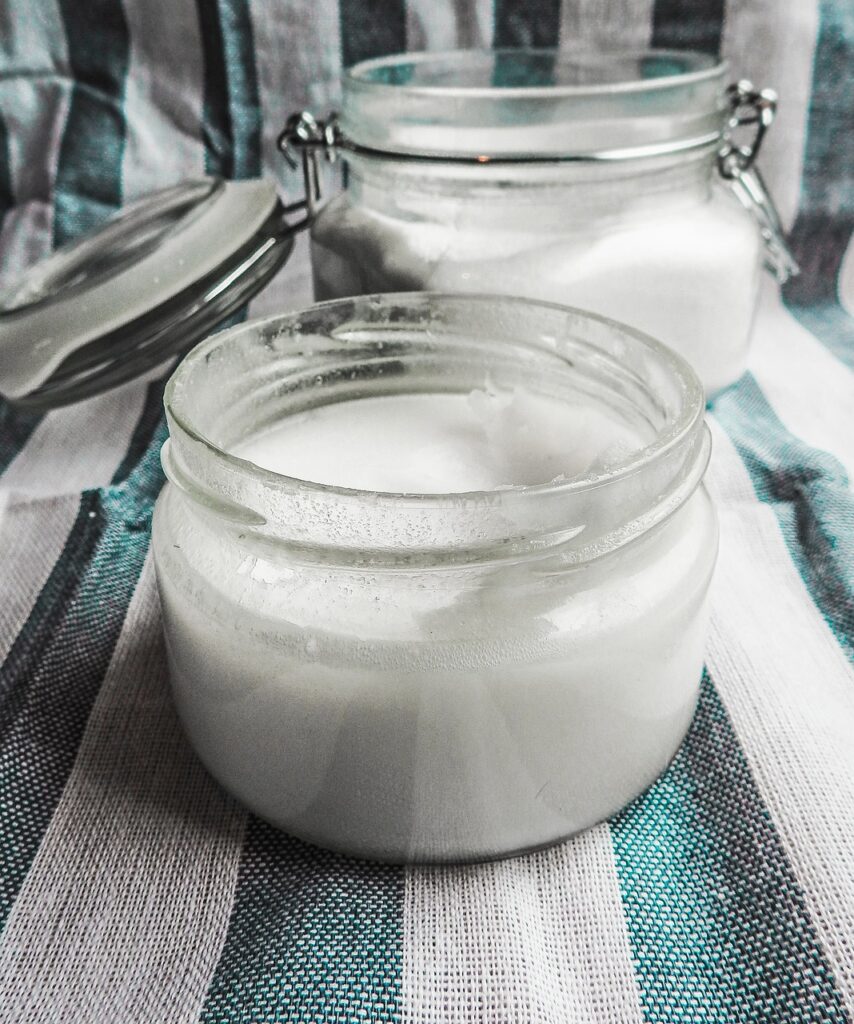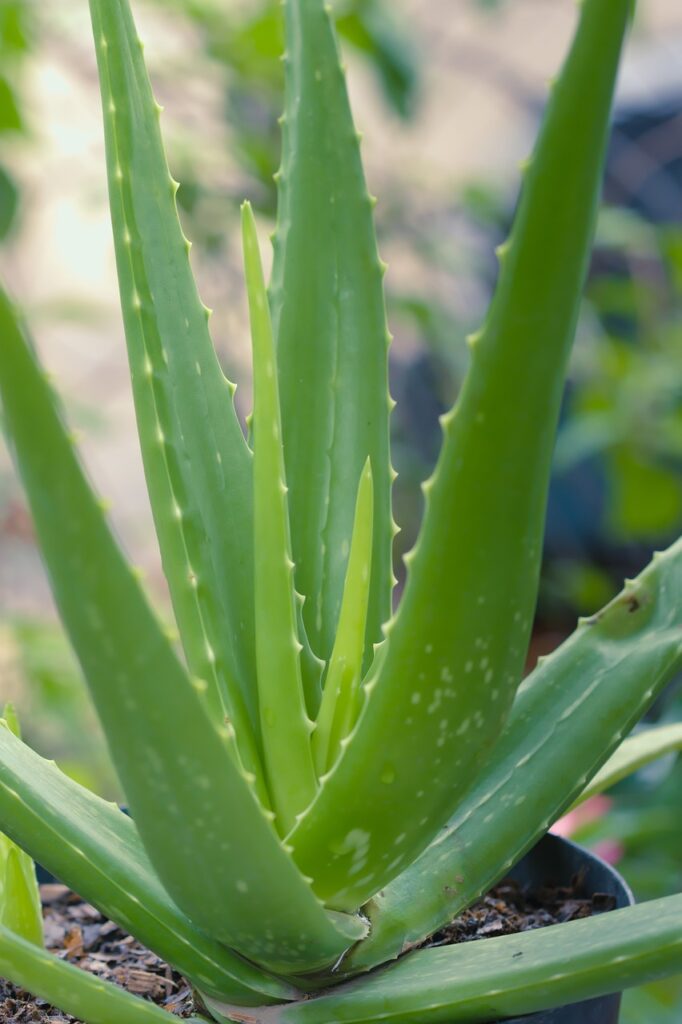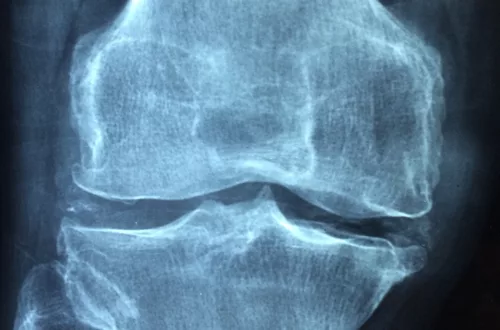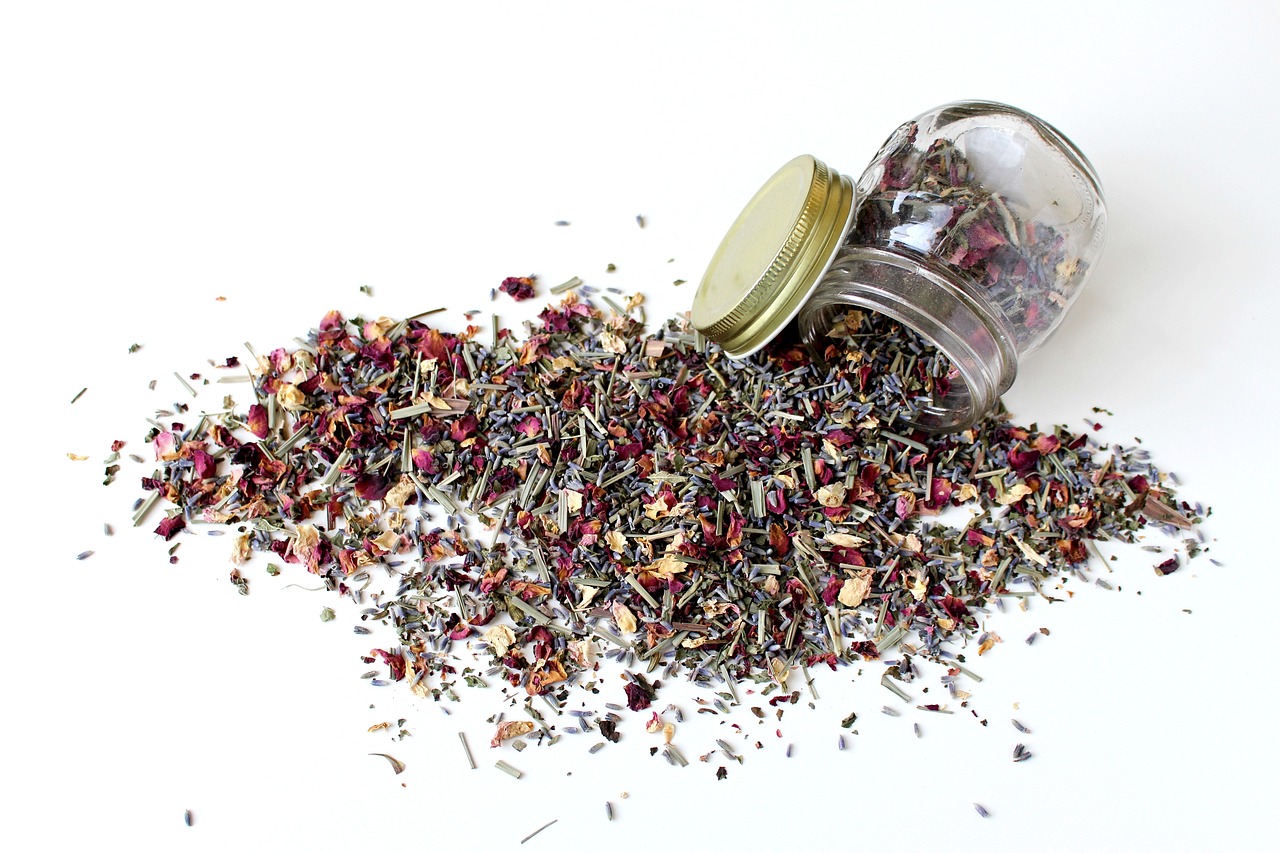Herbal remedies have been used for centuries to treat various health conditions, including oral health issues such as receding gums. Receding gums, also known as gingival recession, is a common dental problem that occurs when the gum tissue surrounding the teeth wears away or pulls back, exposing more of the tooth or its root. It can lead to tooth sensitivity, decay, and even tooth loss if left untreated. However, there are a few herbal remedies for receding gums that can help prevent further issues.
Disclaimer: This article is provided for informational purposes only and should not replace professional medical advice. Please consult with a qualified healthcare practitioner or herbalist before using any herbal remedies.
There are several natural remedies that can help prevent or treat receding gums. Some of these remedies include herbal supplements, essential oils, coconut oil, vitamin C, aloe vera gel, and hydrogen peroxide. These remedies work by reducing inflammation, promoting gum tissue regeneration, and fighting harmful bacteria in the mouth. While these remedies may not replace professional dental treatment, they can be used as a complementary therapy to maintain healthy gums.
Key Takeaways
- Herbal remedies have been used for centuries to treat various health conditions, including receding gums.
- Natural remedies such as essential oils, coconut oil, vitamin C, aloe vera gel, and hydrogen peroxide can help prevent or treat receding gums by reducing inflammation, promoting gum tissue regeneration, and fighting harmful bacteria in the mouth.
- While natural remedies can be used as a complementary therapy to maintain healthy gums, they should not replace professional dental treatment.
Understanding Gum Recession
Gum recession is a common dental problem that occurs when the gum tissue around the teeth pulls back or wears away, exposing the tooth roots. This can result in tooth sensitivity, decay, and even tooth loss if left untreated.
The gum line is the area where the gums meet the teeth. The supporting tissue and bone structure hold the teeth in place. When the gum tissue recedes, it exposes the tooth roots and can cause damage to the supporting tissue and bone structure.

There are several factors that can contribute to gum recession, including:
- Periodontal disease
- Aggressive brushing or flossing
- Genetics
- Hormonal changes
- Tobacco use
- Grinding or clenching teeth
- Crooked teeth or a misaligned bite
It is important to understand the cause of gum recession in order to prevent it from worsening and to seek appropriate treatment.
If left untreated, gum recession can lead to tooth loss and other dental problems. Treatment options may include scaling and root planing, gum graft surgery, or other surgical procedures.
In addition to traditional dental treatments, there are also natural remedies that can be used to help prevent or treat gum recession, such as herbal remedies, oil pulling, and proper oral hygiene practices. It is important to speak with a dental professional before attempting any natural remedies to ensure they are safe and effective.
Causes of Gum Recession
Gum recession, also known as gingival recession, is a common dental problem that affects many people worldwide. It is characterized by the gradual wearing away of the gum tissue, which exposes the roots of the teeth. Gum recession can lead to tooth sensitivity, cavities, and even tooth loss if left untreated. Here are some of the common causes of gum recession:
Poor Oral Hygiene
Poor oral hygiene is one of the leading causes of gum recession. When plaque and tartar build up on the teeth, they can cause the gums to become inflamed and infected. This can lead to the breakdown of the gum tissue, which can cause the gums to recede.
Chronic Periodontitis
Chronic periodontitis is a severe form of gum disease that can cause the gums to recede. It is caused by the buildup of bacteria in the mouth, which can lead to the formation of pockets between the teeth and gums. These pockets can become infected, leading to the destruction of the gum tissue and bone that supports the teeth.
Oral Diseases
Oral diseases such as gum disease and tooth decay can also cause gum recession. These diseases can weaken the gum tissue and cause it to recede over time. If left untreated, they can lead to tooth loss and other serious dental problems.
Risk Factors
There are several risk factors that can increase the likelihood of developing gum recession. These include smoking, hormonal changes, genetics, and certain medications. People who grind their teeth or have misaligned teeth are also at a higher risk of developing gum recession.
In summary, gum recession can be caused by poor oral hygiene, chronic periodontitis, oral diseases, and certain risk factors. It is essential to maintain good oral hygiene and visit a dentist regularly to prevent gum recession and other dental problems.
Symptoms of Receding Gums
Receding gums can be a sign of gum disease, which is a common dental problem that affects many people. Gum disease is caused by the buildup of plaque on the teeth, which can lead to inflammation and infection of the gums. Receding gums can also be caused by other factors, such as genetics, poor oral hygiene, hormonal changes, and smoking.
Some of the common symptoms of receding gums include:
- Red Gums: If the gums are red and inflamed, it could be a sign of gum disease. Healthy gums should be pink and firm.
- Loose Teeth: If the teeth feel loose or are moving around in the mouth, it could be a sign of advanced gum disease. This is because the gums have pulled away from the teeth, causing them to become loose.
- Tooth Decay: If the teeth are starting to decay or develop cavities, it could be a sign of receding gums. This is because the roots of the teeth are exposed and more susceptible to decay.
- Tooth Loss: If the teeth are starting to fall out, it could be a sign of advanced gum disease. This is because the gums have pulled away from the teeth, causing them to become loose and eventually fall out.
If you are experiencing any of these symptoms, it is important to see a dentist as soon as possible. They can diagnose the problem and recommend the appropriate treatment. It is also important to practice good oral hygiene, such as brushing and flossing regularly, to prevent receding gums and other dental problems.
Importance of Oral Hygiene~ Herbal Remedies for Receding Gums
Maintaining proper oral hygiene is crucial for overall oral health. It is the process of keeping the mouth, teeth, and gums clean and healthy to prevent dental problems such as receding gums. Dental hygiene is an essential part of oral hygiene, and it involves practices that keep the teeth clean and healthy.
One of the primary reasons for receding gums is plaque buildup. Plaque is a sticky film of bacteria that forms on the teeth and gums. If not removed, it can harden into tartar, which can cause gum disease, leading to receding gums. Therefore, proper oral hygiene practices such as brushing, flossing, and using mouthwash can help remove plaque and prevent receding gums.

Harmful bacteria in the oral cavity can also cause receding gums. These bacteria can cause infections that damage the gums and teeth, leading to gum recession. Proper oral hygiene practices can help remove harmful bacteria, reducing the risk of gum disease and receding gums.
Regular dental checkups are also an essential part of oral hygiene. A dentist can detect early signs of gum disease, such as receding gums, and provide appropriate treatment before it worsens. This can help prevent further damage to the gums and teeth.
In summary, maintaining proper oral hygiene is crucial for preventing receding gums and other dental problems. Regular brushing, flossing, and using mouthwash can help remove plaque and harmful bacteria, reducing the risk of gum disease. Regular dental checkups can also help detect early signs of gum disease and provide appropriate treatment.
Natural Herbal Remedies for Receding Gums
Receding gums is a common dental problem that can lead to tooth sensitivity, decay, and even tooth loss if left untreated. While there are several conventional treatments available, some people prefer natural remedies to treat receding gums. Here are some natural remedies that may help:
Oil Pulling~ Herbal Remedies for Receding Gums
Oil pulling is an ancient Ayurvedic practice that involves swishing oil in the mouth to improve oral health. It is believed to help remove toxins and bacteria from the mouth, which can reduce inflammation and promote healthy gums. One study found that oil pulling with sesame oil reduced plaque and gingivitis in participants with mild to moderate gingivitis.
Green Tea~ Herbal Remedies for Receding Gums
Green tea is a natural antioxidant that can help reduce inflammation and fight bacteria in the mouth. It contains catechins, which are known to have anti-inflammatory and antibacterial properties. One study found that rinsing with green tea reduced gum bleeding and improved gum health in participants with periodontal disease.
Aloe Vera~ Herbal Remedies for Receding Gums
Aloe vera has anti-inflammatory and antibacterial properties that can help reduce inflammation and fight bacteria in the mouth. It also contains vitamins and minerals that can promote healthy gums. One study found that using an aloe vera mouthwash reduced plaque and gingivitis in participants with periodontal disease.
Herbal Medicines
Herbal medicines can be used to treat receding gums as well. For example, sage has anti-inflammatory and antimicrobial properties that can help reduce inflammation and fight bacteria in the mouth. It can be used as a mouthwash or added to toothpaste. Another herb that can be used is chamomile, which has anti-inflammatory properties that can help reduce inflammation and promote healthy gums.
While natural remedies may be helpful in treating receding gums, it is important to consult with a dentist before using them. In some cases, conventional treatments may be necessary to prevent further damage to the gums and teeth.
Essential Oils for Gum Health
Essential oils are highly concentrated plant extracts that have been used for centuries for their medicinal properties. When it comes to gum health, essential oils can be a valuable addition to one’s oral care routine.
Tea tree oil is one of the most popular essential oils for gum health. It has antimicrobial properties that can help reduce inflammation and fight bacteria that can cause gum disease. A study published in the International Journal of Dental Hygiene found that using a toothpaste containing tea tree oil can significantly improve gum health.
Clove oil is another essential oil that can be beneficial for gum health. It has analgesic and anti-inflammatory properties that can help reduce pain and swelling associated with gum disease. Clove oil can be used topically by diluting it with a carrier oil, such as sesame oil, and applying it directly to the gums.

Oil pulling is a traditional Ayurvedic practice that involves swishing oil, such as sesame oil, in the mouth for several minutes. This practice is believed to improve oral health by removing bacteria and toxins from the mouth. A study published in the Journal of Traditional and Complementary Medicine found that oil pulling with sesame oil can significantly reduce plaque and improve gum health.
In conclusion, essential oils can be a valuable addition to one’s oral care routine for improving gum health. Tea tree oil and clove oil have antimicrobial and anti-inflammatory properties that can help fight gum disease. Oil pulling with sesame oil can also be an effective way to improve gum health by removing bacteria and toxins from the mouth.
Benefits of Coconut Oil~ Herbal Remedies for Receding Gums
Coconut oil has been used for centuries in traditional medicine to treat various ailments. It is extracted from the meat of mature coconuts and is high in saturated fatty acids, which have been linked to numerous health benefits. In recent years, coconut oil has gained popularity as a natural remedy for receding gums.
Coconut oil contains lauric acid, which has antibacterial properties that can help fight off harmful bacteria in the mouth. This can prevent the buildup of plaque and tartar, which are major contributors to gum disease. In addition, coconut oil has been shown to reduce inflammation in the gums, which can help prevent gum recession.
Studies have also shown that coconut oil can help promote healthy teeth and gums by reducing the risk of tooth decay and gum disease. The fatty acids in coconut oil can help strengthen tooth enamel and prevent the growth of harmful bacteria in the mouth.
There are several ways to use coconut oil for oral health. One popular method is oil pulling, which involves swishing a tablespoon of coconut oil in the mouth for 10-20 minutes before spitting it out. This can help remove harmful bacteria and promote healthy gums and teeth.
Overall, coconut oil is a natural and effective Herbal Remedies for Receding Gums and other oral health issues. Its antibacterial and anti-inflammatory properties make it a great addition to any oral hygiene routine. However, it is important to use coconut oil in moderation and as part of a comprehensive oral care plan that includes regular brushing, flossing, and dental checkups.
Role of Vitamin C in Herbal Remedies for Receding Gums
Vitamin C, also known as ascorbic acid, is an essential nutrient that plays a crucial role in maintaining healthy gums. It is a powerful antioxidant that helps to protect the gum tissues from damage caused by harmful free radicals. Vitamin C also helps to boost the immune system, which is essential for fighting off infections that can cause gum disease.
Research has shown that people who consume less vitamin C are more likely to develop gum disease. This is because vitamin C is necessary for the production of collagen, a protein that helps to keep the gums strong and healthy. Without enough vitamin C, the gums can become weak and more susceptible to damage.
Some of the best sources of vitamin C include citrus fruits, strawberries, kiwi fruit, guava, broccoli, Brussels sprouts, and red peppers. It is recommended that adults consume at least 75-90 mg of vitamin C per day, although higher doses may be necessary for people with gum disease.
In addition to consuming vitamin C-rich foods, it may also be helpful to take a vitamin C supplement to ensure that you are getting enough of this essential nutrient. However, it is important to speak with a healthcare provider before starting any new supplement regimen.
Overall, vitamin C plays a vital role in maintaining healthy gums. By consuming a diet rich in vitamin C and taking supplements as needed, individuals can help to prevent gum disease and maintain optimal oral health.
Use of Aloe Vera Gel~ Herbal Remedies for Receding Gums
Aloe vera gel has been used for centuries to treat various oral health problems, including receding gums. The gel is extracted from the leaves of the aloe vera plant and contains active ingredients that have anti-inflammatory and healing properties.
One of the active ingredients in aloe vera gel is acemannan, a polysaccharide that has been shown to have anti-inflammatory properties. Acemannan can help reduce inflammation in the gums, which can help prevent further gum recession.
In addition to its anti-inflammatory properties, aloe vera gel also contains vitamins and minerals that are essential for healthy gums. These include vitamin C, which helps promote collagen production, and calcium, which is important for strong teeth and bones.

To use aloe vera gel for receding gums, one can apply the gel directly to the affected area using a clean finger or a soft-bristled toothbrush. Alternatively, one can use aloe vera mouthwash, which is available at most health food stores.
It is important to note that while aloe vera gel can be a helpful home remedy for receding gums, it should not be used as a substitute for professional dental care. If you are experiencing gum recession, it is important to see a dentist for a proper diagnosis and treatment plan.
Hydrogen Peroxide: A Natural Antiseptic
Hydrogen peroxide is a common household antiseptic that has been used for decades to kill bacteria and prevent infections. It is a colorless liquid that is slightly more viscous than water and has a slightly bitter taste. Hydrogen peroxide is a natural antiseptic that is produced by the body’s immune system to fight off bacteria and other harmful microorganisms.
One of the most common uses of hydrogen peroxide is to clean wounds and prevent infections. When applied to a wound, it reacts with the enzymes in the wound to produce oxygen, which kills bacteria and other harmful microorganisms. Hydrogen peroxide is also effective at killing bacteria in the mouth and can be used as a mouthwash to prevent oral infections.
The antibacterial properties of hydrogen peroxide have been well documented in scientific literature. In a study published in the Journal of Clinical Periodontology, researchers found that hydrogen peroxide was effective at killing bacteria that cause periodontal disease, a condition that can lead to receding gums. Another study found that hydrogen peroxide was effective at killing bacteria that cause dental caries, or tooth decay.
However, it is important to note that hydrogen peroxide can be harmful if ingested or applied to the skin in high concentrations. It can cause skin irritation, burns, and even tissue damage if used improperly. It is recommended to use a diluted solution of hydrogen peroxide when using it as a mouthwash or for other purposes.
Overall, hydrogen peroxide is a natural antiseptic that can be used to prevent bacterial infections and promote oral health. While it is effective at killing bacteria, it should be used with caution and in moderation to avoid harmful side effects.
Dry Mouth and Gum Health
Dry mouth, also known as xerostomia, is a common condition that affects many people. It occurs when there is a decrease in the production of saliva in the mouth. Saliva plays an important role in maintaining oral health by helping to wash away food particles and neutralize acids that can cause tooth decay. When there is not enough saliva, it can lead to a number of oral problems, including gum disease and tooth decay.
One of the most common causes of dry mouth is medication. Many medications can cause dry mouth as a side effect, including antihistamines, antidepressants, and blood pressure medications. Other causes of dry mouth include dehydration, smoking, and certain medical conditions such as Sjogren’s syndrome.
Dry mouth can also lead to bad breath, which can be embarrassing and affect a person’s self-confidence. When there is not enough saliva in the mouth, bacteria can build up and cause an unpleasant odor. This can be especially problematic for people who wear dentures, as bad breath can be more noticeable.
Gum Disease
If left untreated, dry mouth can lead to gum disease and other oral health problems. Gum disease, also known as periodontal disease, is a serious condition that can cause receding gums, tooth loss, and other complications. It is important to maintain good oral hygiene habits, such as brushing and flossing regularly, to prevent gum disease and other oral problems.
There are several herbal remedies that may help to alleviate dry mouth and improve gum health. These include:
- Aloe vera: Aloe vera has anti-inflammatory properties that can help to reduce inflammation in the gums and promote healing. It can also help to soothe the tissues in the mouth and stimulate the production of saliva.
- Green tea: Green tea contains antioxidants that can help to reduce inflammation in the gums and improve oral health. It also contains polyphenols that can help to fight bacteria in the mouth and prevent gum disease.
- Peppermint: Peppermint has a refreshing flavor that can help to freshen breath and stimulate the production of saliva. It also has antibacterial properties that can help to fight bacteria in the mouth and prevent gum disease.
It is important to talk to a healthcare professional before using any herbal remedies to treat dry mouth or other oral health problems. They can provide guidance on the best course of treatment and help to ensure that any herbal remedies are safe and effective.
Traditional Remedies in Oral Health
For centuries, traditional medicine has been used to treat various ailments, including oral health problems. Many ancient methods are still in use today, and some have even been scientifically proven to be effective.
One traditional remedy for receding gums is the use of Ficus bengalensis, also known as the banyan tree. This tree is native to India and has been used in Ayurvedic medicine for centuries. The leaves of the banyan tree are used to make a paste that is applied directly to the gums. This paste is believed to reduce inflammation and promote gum tissue regeneration.
Another traditional remedy for receding gums is the use of Indian madder, also known as Rubia cordifolia. This plant has been used in traditional medicine for its anti-inflammatory and antimicrobial properties. The roots of the Indian madder plant are used to make a paste that is applied to the gums. This paste is believed to help reduce inflammation and promote the growth of healthy gum tissue.
It is important to note that while traditional remedies may be effective, they should not replace proper dental hygiene. Regular brushing, flossing, and dental check-ups are still essential for maintaining good oral health. Additionally, it is important to consult with a healthcare professional before trying any new remedies or treatments.
In summary, traditional remedies such as Ficus bengalensis and Indian madder have been used for centuries to treat oral health problems, including receding gums. While they may be effective, they should not be used as a substitute for proper dental hygiene and consultation with a healthcare professional.
Professional Treatments for Receding Gums
When it comes to receding gums, professional treatment may be necessary to prevent further damage and improve oral health. There are several options available, depending on the severity of the condition and the underlying cause.
One common professional treatment for receding gums is deep cleaning, also known as scaling and root planing. This procedure involves removing plaque and tartar buildup from the teeth and smoothing the root surfaces to promote gum reattachment. Deep cleaning may be recommended for patients with early-stage gum disease or mild to moderate gum recession.
For more advanced cases of receding gums, a gum graft or soft tissue graft may be necessary. This involves taking tissue from another part of the mouth, such as the roof of the mouth, and grafting it onto the affected area to cover the exposed root and promote gum regeneration. This procedure can be done surgically or non-surgically, depending on the patient’s needs and preferences.
In some cases, professional treatment may also involve addressing underlying health conditions that contribute to gum recession, such as diabetes or hormonal imbalances. This may involve working with a healthcare provider to manage these conditions and improve overall health.
It is important to note that while professional treatment can be effective in treating receding gums, it is not a substitute for good oral hygiene habits at home. Patients should continue to brush and floss regularly and schedule regular dental checkups to maintain optimal oral health.

Conclusion: Maintaining Healthy Gums
In conclusion, maintaining healthy gums is essential for overall oral health. Herbal remedies can be an effective way to promote healthy gums and prevent receding gums.
Good oral hygiene practices, such as regular brushing and flossing, are also crucial for healthy gums. Additionally, regular dental care, including professional cleanings and checkups, can help prevent gum disease and other oral health issues.
Herbal remedies, such as oil pulling and the use of miswak, have been shown to be effective in promoting healthy gums. Essential oils, such as peppermint and tea tree oil, have also been used for their antibacterial properties to help prevent gum disease.
It’s important to note that while herbal remedies can be effective, they should not be used as a substitute for good oral hygiene practices and regular dental care. It’s recommended to consult with a dental professional before using any herbal remedies for gum health.
In summary, maintaining healthy gums is crucial for good oral health. Incorporating herbal remedies into a comprehensive oral health routine can be an effective way to promote healthy gums and prevent receding gums. However, it’s important to also practice good oral hygiene and seek regular dental care to maintain overall oral health.







Steeping time is important. Green tea should be steeped for a shorter amount of time than black tea, typically for 1-2 minutes.